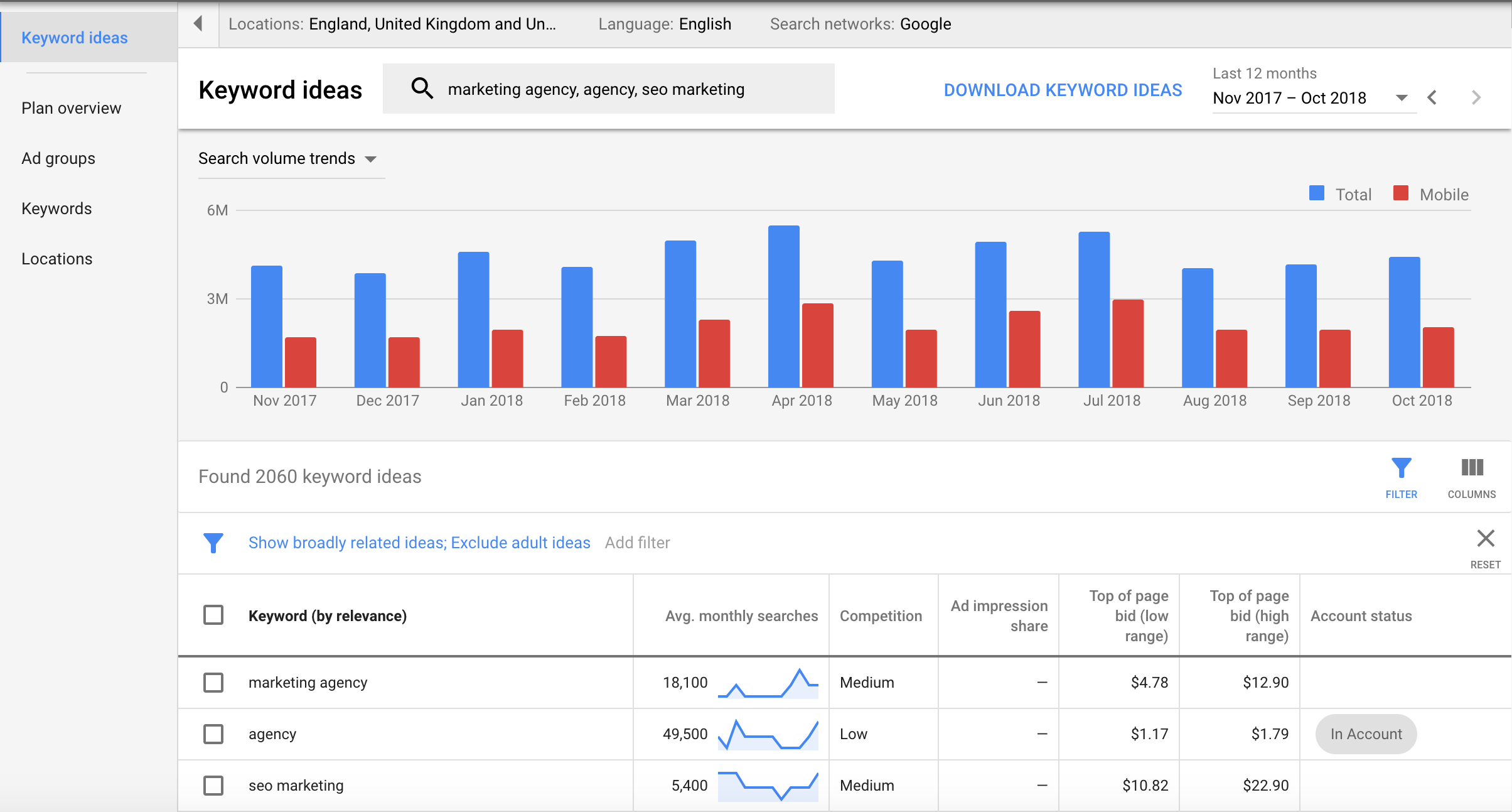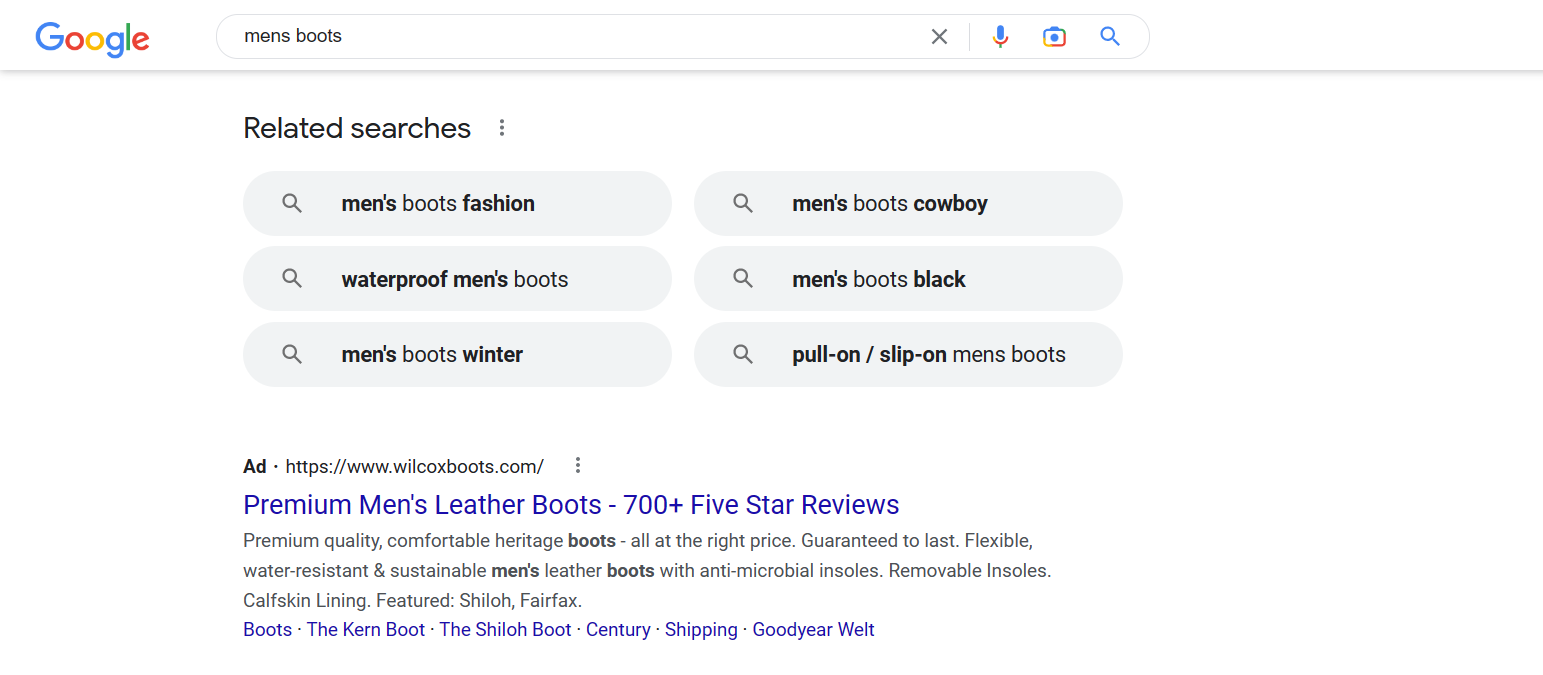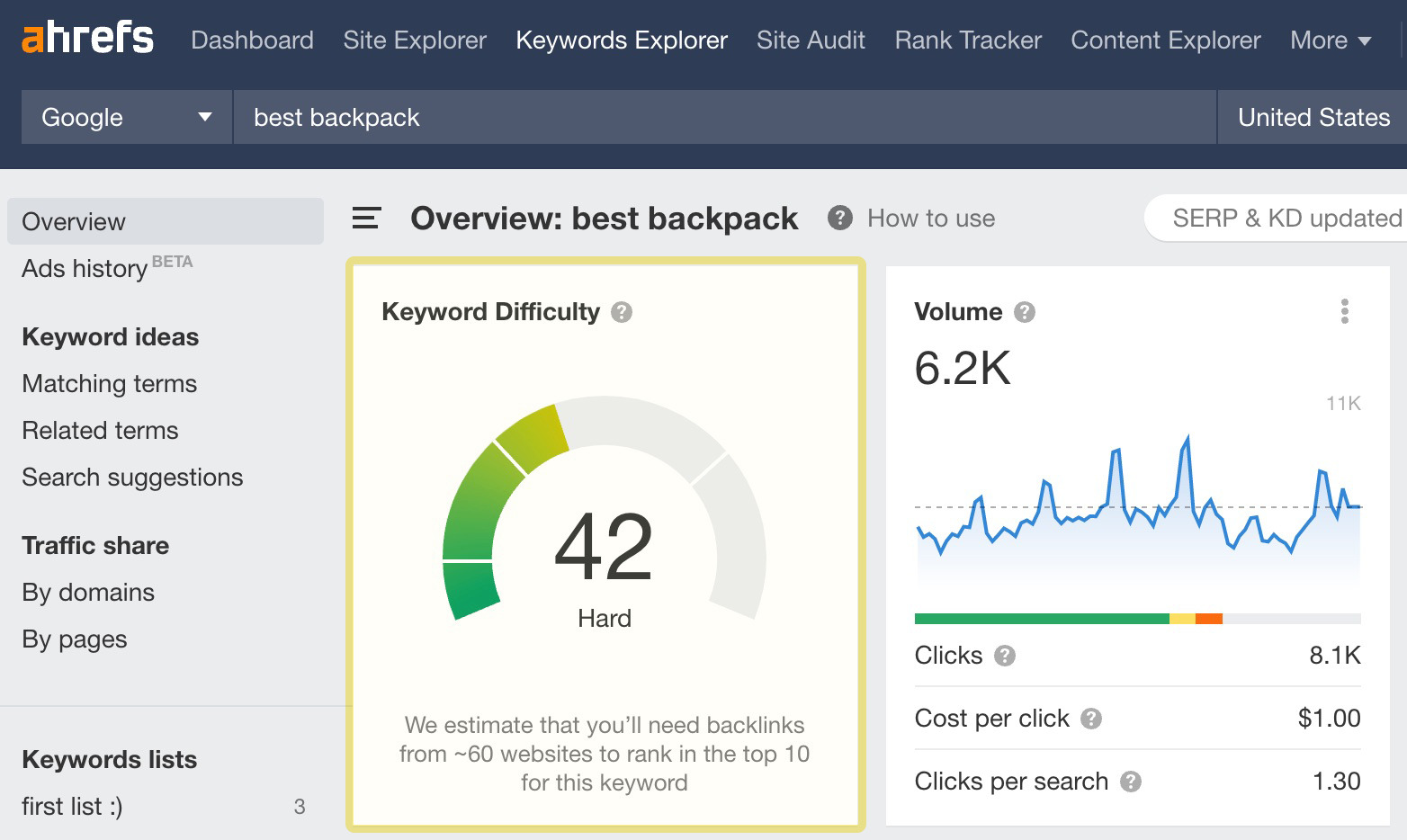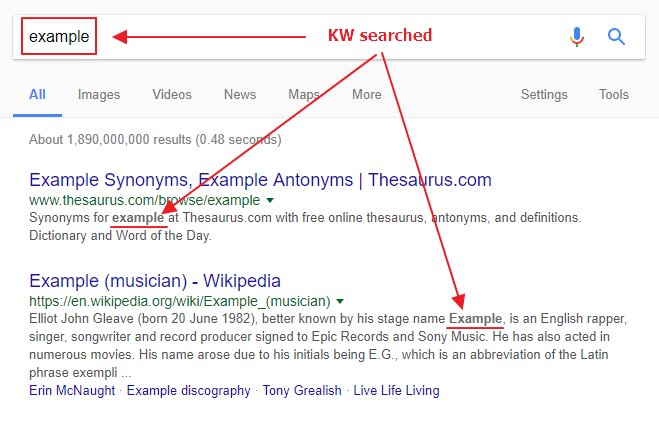Are you looking to improve your website’s search engine rankings for men’s clothing? If so, you’re in the right place! This post will discuss the role of keywords in SEO for marketing men’s clothing websites. We’ll provide a list of keywords you can use to optimize your website and increase traffic. So, whether you are just starting out or you’ve been in business for years, make sure to read this post.
What are SEO Keywords, and Why Do You Need Them?
For starters, keywords are a series of words that users type into search engines. Keywords provide the user with a list of options after typing in a certain number of letters or phrases based on what they’re looking for. In this case, an individual might order “men’s shoes” and receive results for different types of shoes. Google’s Keyword Planner is an excellent resource for finding keywords people use. Type in a term or phrase and get some suggestions on what to use. For example:

(Image Credit: BenchmarkOne)
And don’t forget the power of long-tail keywords! These are longer and more unique phrases that people search for daily. They often contain three or more words but can still be very specific based on the product or service you sell. For example, “men’s leather boots brown size 13” is considered a long-tail keyword because it’s so detailed and doesn’t include any “fluff.”
Tips for Using SEO Keywords
First of all, long-tail keywords are less competitive. This means it will be easier to take over first page rankings for them than other terms like “men’s shoes,” which is highly competitive.
The second way to put SEO keywords in a website is that there’s a chance that someone might click on one of your listings if you’re ranking for a long-tail term. This indicates that people are using these terms, and it’s also an excellent way to get free traffic.
Lastly, there’s the issue of relevancy. You want your website to be seen by people who are genuinely interested in what you have to offer. If you have a website about “men’s shoes,” but you’re ranking for a term like “men’s leather boots,” it’s unlikely that someone will find that good of a match and convert it into a sale or customer. With this in mind, you should know the role of keywords in SEO for your website so your business can rank.
What is Keyword Ranking, and Why Aim for A High Position?
Search engines use keyword rankings to rank websites based on their relevance for a particular term. Some keywords rank higher than others, meaning that a website will appear in bold or with the letter “a” next to it if it appears at the top of Google’s results. Depending on what you’re selling, you’ll aim for first-page rankings. That means if someone types in a phrase like “men’s leather boots,” your website should be the first thing listed. If your webpage is not on the first two pages of Google’s results, people are less likely to see it simply because they need more time or patience to scroll through the millions of websites being ranked. That’s why getting a high position for specific keywords is so important.
What Is the Process of Having Your Website Rank Higher
The answer to this question depends on your business type and how competitive the keyword is in your industry. For example, if you run a local flower shop, your goal for this year should be to rank on the first page of Google for terms like “flower shops near me.” On the other hand, if you have an online shoe store, it would be best to try and rank higher for keywords like “men’s leather boots” or something similar.
You’ll have to research to develop a strategy that works. This includes studying what your competitors are doing in SEO, using keyword ranking tools, and watching how Google’s results change over time. As for the last part, it’s essential to time your campaigns correctly. If you start getting higher rankings before you have content or products online, it could take a long to achieve results.
Methods for Finding Top SEO Keywords
There are many ways to find top SEO keywords and phrases to help your website rank better. For example, the Google AdWords’ Keyword Planner tool is an excellent resource because it will give you ideas for specific regular searches or phrases people use. The other option is to see the results using Google’s search bar. For instance:

Like most things, more data in your investigation will give you a better idea of what people are looking for. That way, it’ll be easier to find ideas for finding top SEO keywords in terms of related searches and specific terms that could help your website get traffic over time.
SEO Basics That You Should Be Doing
Learning the role of keywords in SEO doesn’t have to be difficult. However, it can vary based on what types of products or services you’re offering. For instance, if you own a real estate company, optimizing your website for local search terms like “apartments in Chicago” or something similar would probably make sense. On the other hand, if you sell shoes online, ranking higher for keywords like “men’s leather boots” is more likely to get traffic. Either way, you’ll start by determining the keyword phrases that drive the most traffic and that you can realistically rank for in Google’s search results. Then it will be time to build (or hire someone to create) some content around those keywords on your website’s pages.
SEO can seem very complicated and overwhelming at times, but it’s easy to improve your site if you take the proper steps and work on them consistently. The simplest thing you can do is create some great content on your website that is unique and relevant. You’ll want to use keywords or key phrases to help Google’s algorithms determine where your page should rank in search results.
You Might Also Like
Make sure the site is fully optimized and shows up on Google, Bing, and other significant engines when people look for what you offer. The key to a successful website is to make sure everything about it helps get you results, from social media buttons that drive traffic to ensure that the overall design and layout attract your target market.
Another thing you need to do is optimize all of your content for specific keywords, but never at the cost of making it sound natural. Your website must also have great content because Google will penalize you if you put up anything that looks like a thin page. There are also ways you can drive traffic to your website, but remember that what will work for one business may be different for someone else. All in all, there’s no magic formula or shortcut regarding the role of keywords in SEO. You must keep learning and testing new strategies until you start seeing a positive impact on your bottom line.
Finding Keyword Difficulty
There are many keyword difficulty tools, but not all will be accurate. This is because it takes time to measure the number of people who search for specific keywords and how competitive they’ll be when you try to rank. That being said, there are still some good keyword research tools that can help you better understand how much competition you’ll be up against. For example:

(Image Credit: Ahrefs)
Most keyword tools will give you some idea of the difficulty level of your search terms. For example, if one of your keywords has around 1 million monthly searches and a competitive score of 40 out of 100, it will be harder to rank for that term than something with 10,000 monthly searches and a score of 20. On the other hand, if you’re trying to rank for a phrase with 500 monthly searches and a score of 40, it will be easier than going after a search term with 60 monthly searches and a score of 100.
Keyword difficulty can also be affected by how applicable your content is to readers. In theory, if you write something constructive, other sites will link to it, and your rankings should improve. The more helpful content you have on your website, the better.
Finding Search Volume
A few tools will help you estimate the number of people searching for your keywords. Google has its Keyword Planner, but other options are more accurate. For example, putting something like “TV repair Denver” might show 20,000 monthly searches. On the other hand, Google AdWords’ Keyword Tool would result in around 38,000.
You can also use keyword research tools from Word tracker and SEO Book. Another good thing to do is set up Google Alerts for your keywords so you can regularly see what people are searching for. In addition to these methods, you should check your email and see if any of the most common search queries have been coming across your screen lately.
You’ll need a tool that can help you gauge the overall interest for each of your keywords. For example, if you type something like “buy chocolate online” into Google, you’ll see around 1.5 billion monthly searches. It’s also good to see how often people search for specific words on YouTube, Bing, and Yahoo. If you use any keyword research tool, it’s important to note that they all have pros and cons, so you have to learn how to interpret the information they give you.
How Many SEO Keywords Should I Use?
The question of “how many SEO keywords should I use?” depends on what kind of website you have. The more content you have, the better because Google will recognize it as a sign that your site is well-rounded and comprehensive. For example, if you write about something in-depth, include several different keyword variations throughout the article to increase search traffic. It would be best if you also had keywords relevant to your line of work. If you’re running a law firm specializing in bankruptcy, write about bankruptcy just one time. Mention it several times, and in a variety of ways, throughout your website so people who type something like “Denver bankruptcy” know you’re an authority on the subject.
It’s also a good idea to check your site status regularly to see which keywords are getting the most searches. This will give you insight into the role of keywords in SEO and what types of phrases people are typing in to get information about something similar to yours.
Ensure that your website uses only a few relevant keywords in its content. If you use something like “natural supplements for joint health” five times on a page, Google might think you’re spamming them because there’s no context to explain what the term means. On the other hand, putting this phrase into Google Keyword Planner will show over 1 million monthly searches for this term. You have to find a happy medium that you can stick to.
It would help if you used a wide range of keywords when doing your SEO, but you don’t have to make each one count. Focusing on around 20-30 relevant search terms is much more effective. If you try to rank for every relevant keyword, you’ll spread your resources too thin and need help putting your best efforts forward.
Lastly, read through each page on your website to find the relevant search terms you can work into your content. For example, if you’re writing about one of the most famous tennis players in recent years, you could put in a couple of words that convey that idea and discuss his career victories. Doing this will help people understand what different phrases have to do with the topic you’re talking about.
How to Put SEO Keywords on a Website?
There are many ways to use keywords on your website, so you’ll need to experiment and see what works for you. For example, you can integrate some of them into the main content on each page, while others might be tagged as metadata.
Another thing to keep in mind is that keyword placement matters. Put them at the end of your article, or place them close to specific images. You’ll also want to use them on your website’s pages. You can put these keywords into the title tags, H1 headers, and meta descriptions. When doing this, make sure each one sounds natural, as if it was meant to be there. Otherwise, you’ll look spammy and turn readers off your page.

(Image Credit: YellowHEAD)
Including keywords on some of your web pages’ subheadings is also a good idea. You’ll want to make sure they sound as natural as possible, but this is where you can be a little more liberal with your SEO efforts as long as you aren’t entirely abusing your keywords.
It’s important to note that the way you use search terms on your site will depend on what kind of website you have. For articles, having related phrases in the main content is a good idea, but placing them in different headers or simply including too many relevant keywords will only annoy readers.
On the other hand, if you have a site that sells products, you will want to include relevant terms such as marketing men’s clothing all over each page. Think of it this way: If someone was interested in buying a specific product and searched Google for it, how would they find your website? You’ll need to make sure there’s a link or mention of your site on the first page of search results, so you’ll want to work keywords wherever they fit.
Another thing to remember is that you can use only some of the keywords on every webpage. Just because 1 million people are searching for a particular phrase doesn’t mean that each of those people will ever come across your site. You’ll still want to focus on around 20-30 keywords most relevant to your topic. Too many will hurt any chance of ranking well, and too few will leave a lot of traffic on the table.
Diib® Digital: Marketing for Your Men’s Clothing Line
Are you still worried about the role of keywords in SEO in your men’s clothing line? Don’t worry about doing everything perfectly on your first try because it will require a lot of trial and error before you find what works for your particular website. That said, ensure that all of your content sounds natural, which means that most of your keywords should be relevant to marketing men’s clothing or the subject you are dealing with.
Diib® Digital offers a comprehensive service that makes your SEO keyword selection easy and straightforward. Here are a few of our features you’re sure to appreciate:
- Keyword, backlink, and indexing monitoring and tracking tools
- Blacklist monitoring and objectives for repair
- User experience and mobile speed optimization
- Bounce rate monitoring and repair
- Social media integration and performance
- Broken pages where you have backlinks (404 checker)
- Technical SEO monitoring
Click here for your free scan or simply call 800-303-3510 to speak to one of our growth experts.



